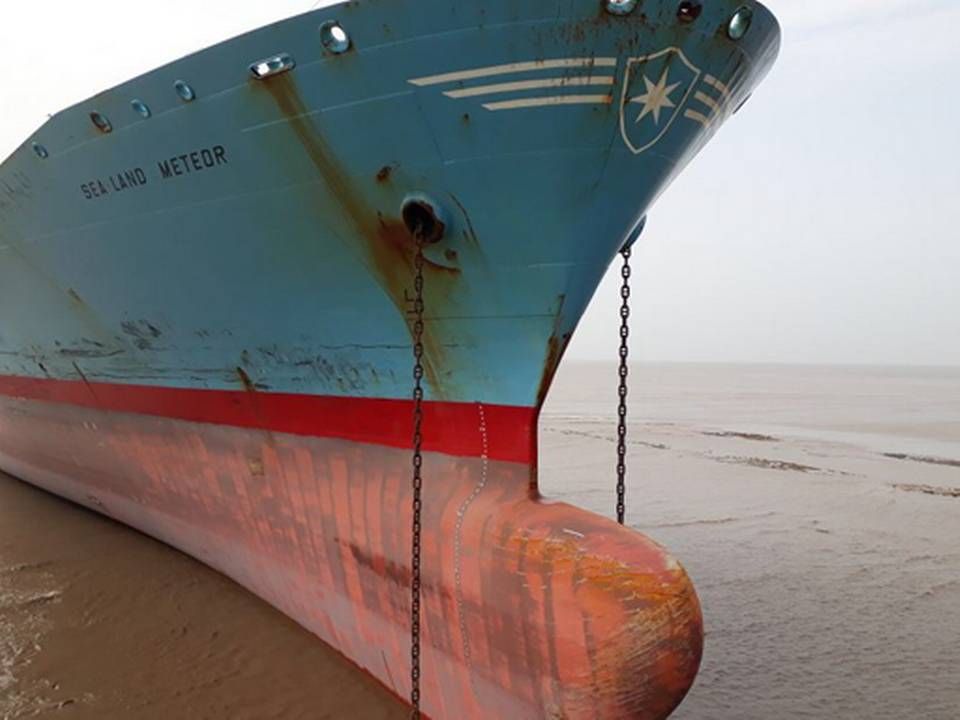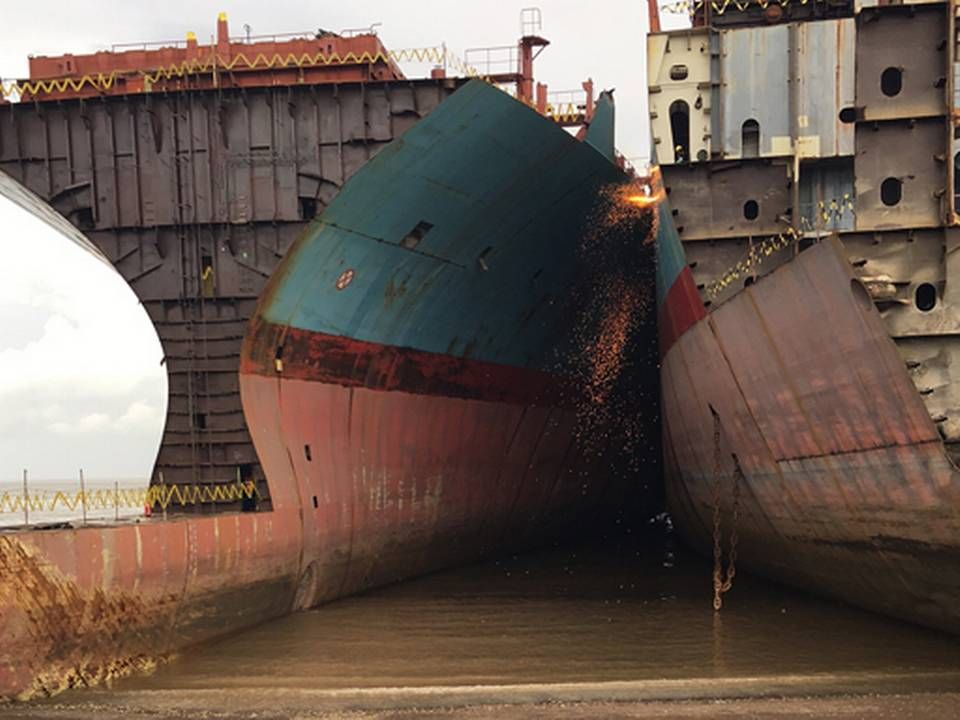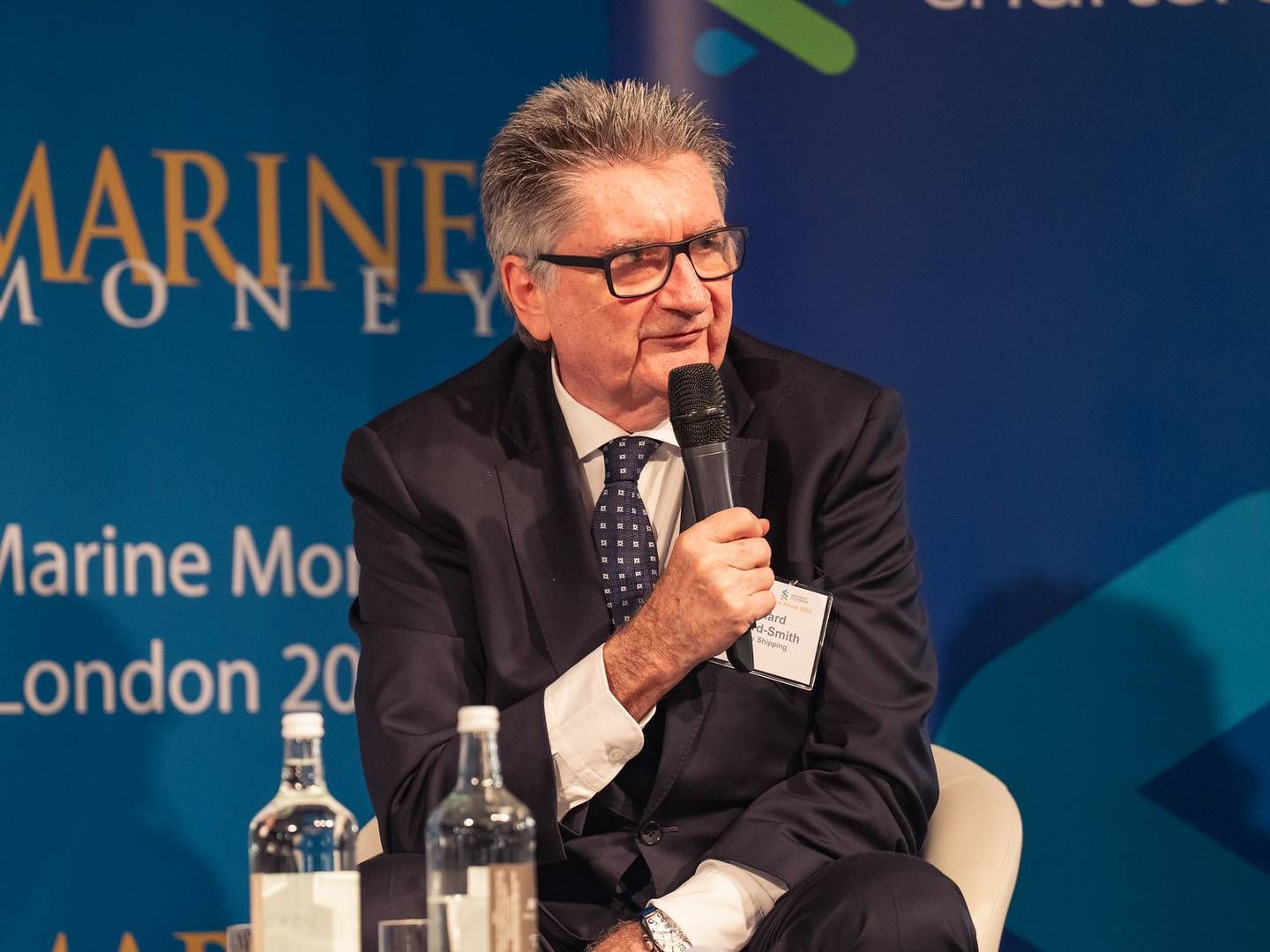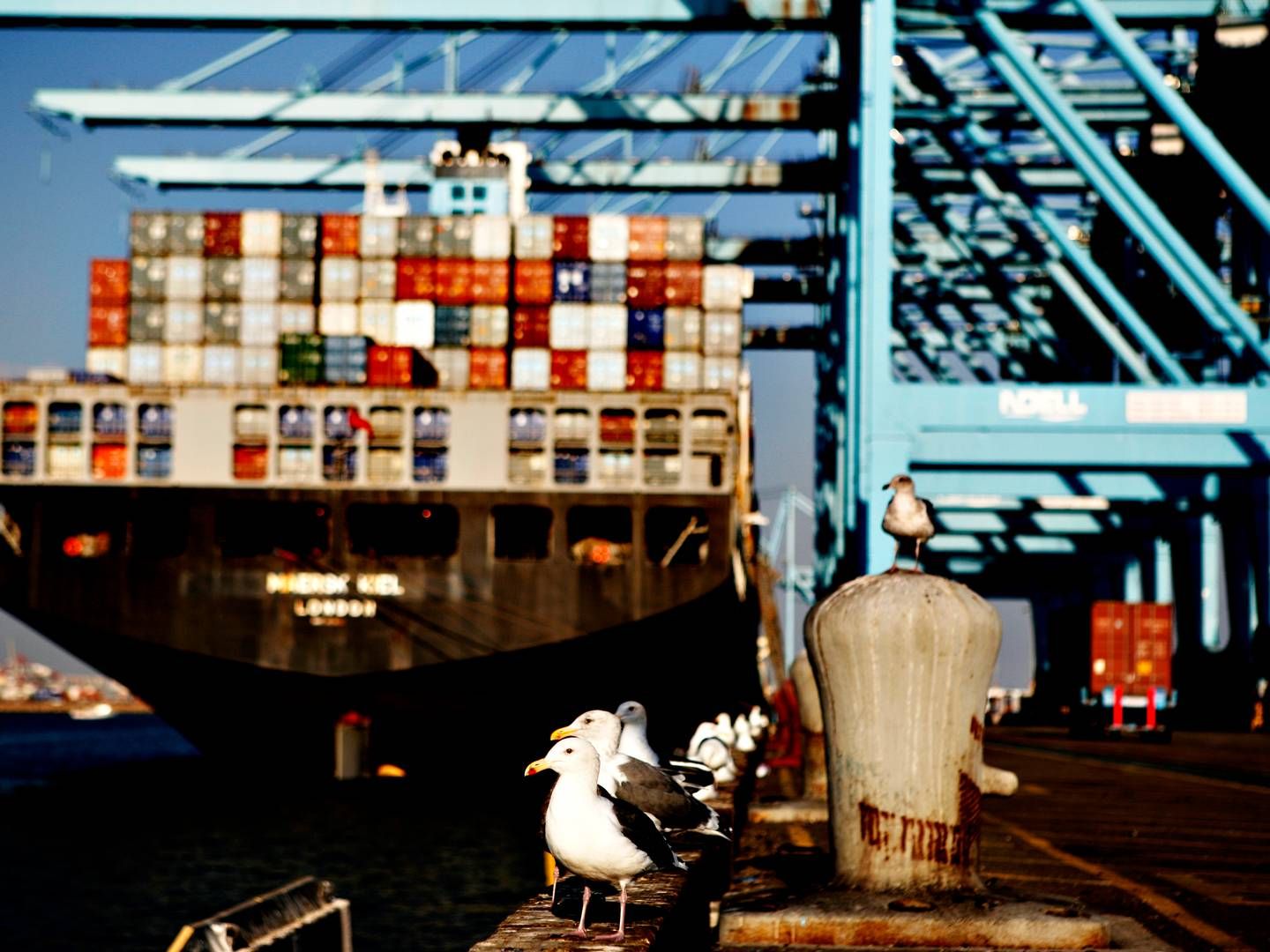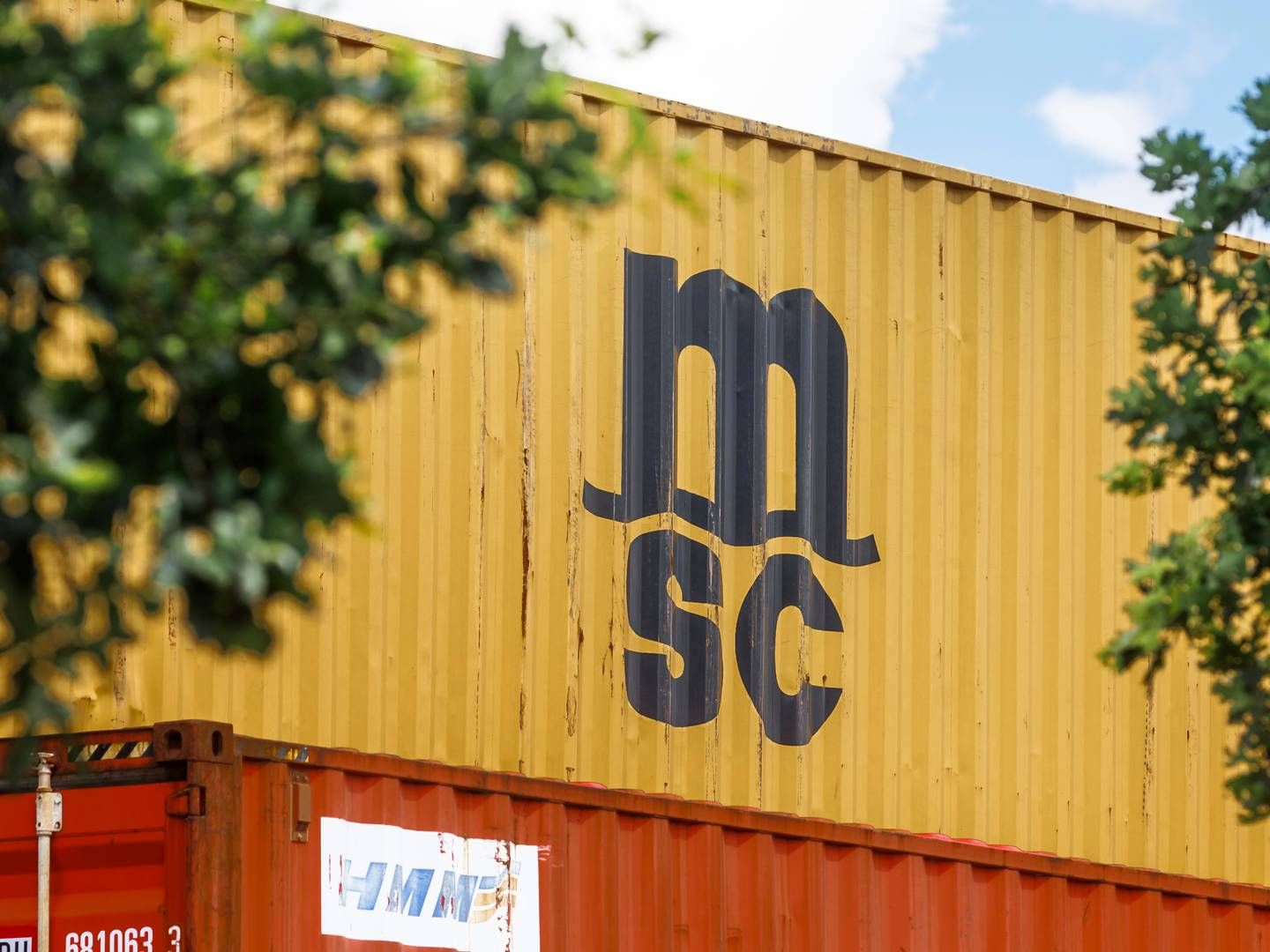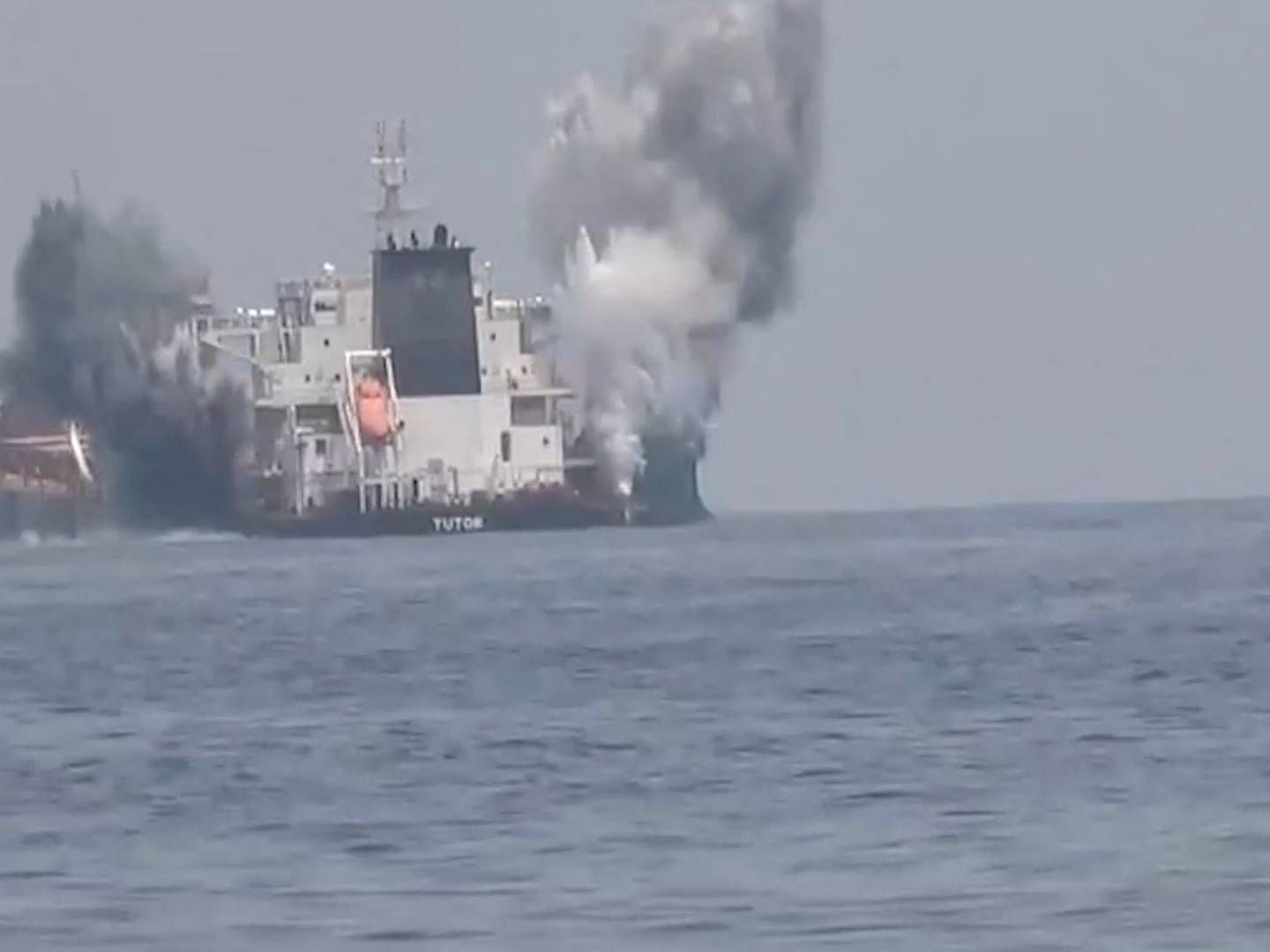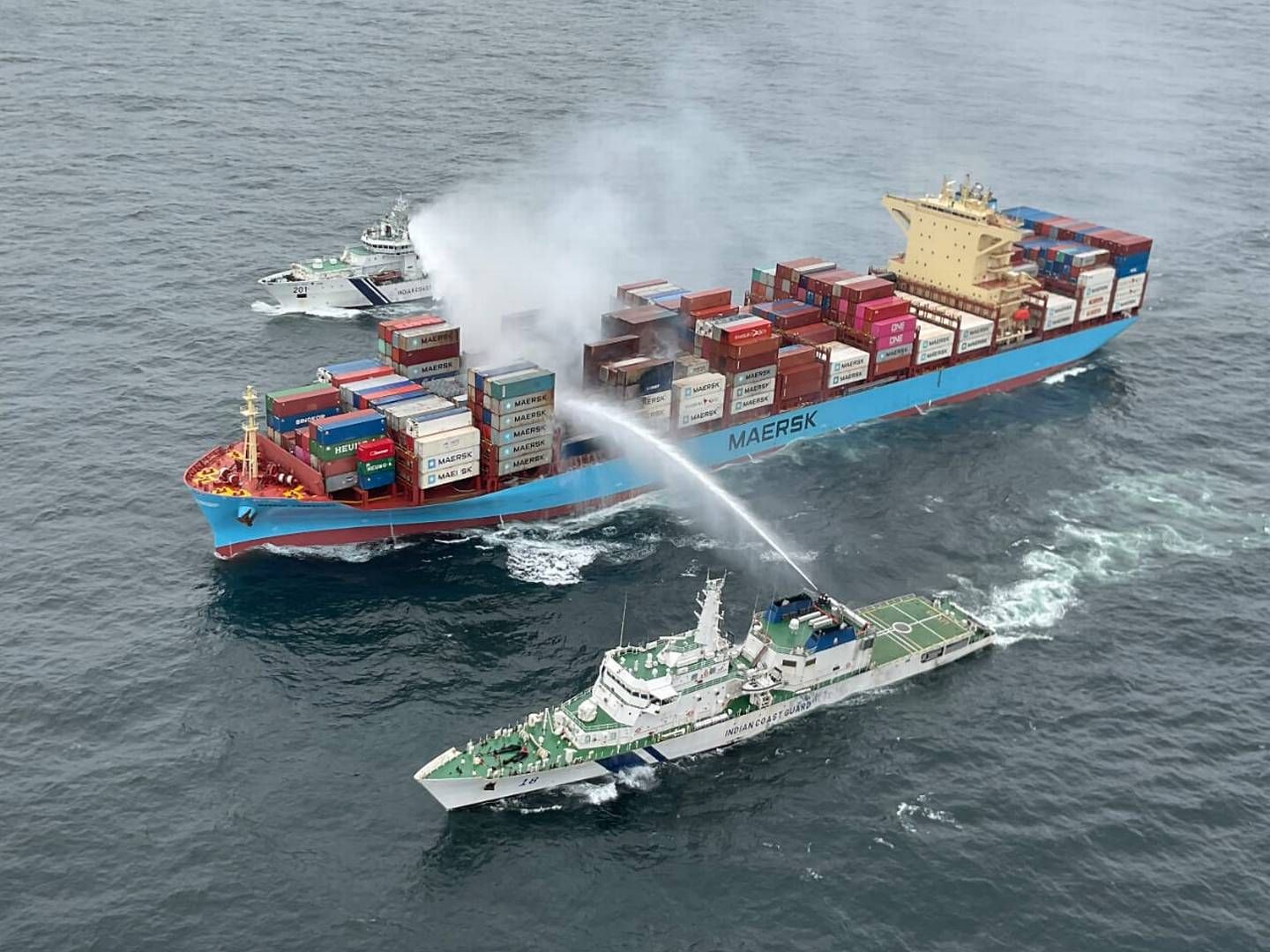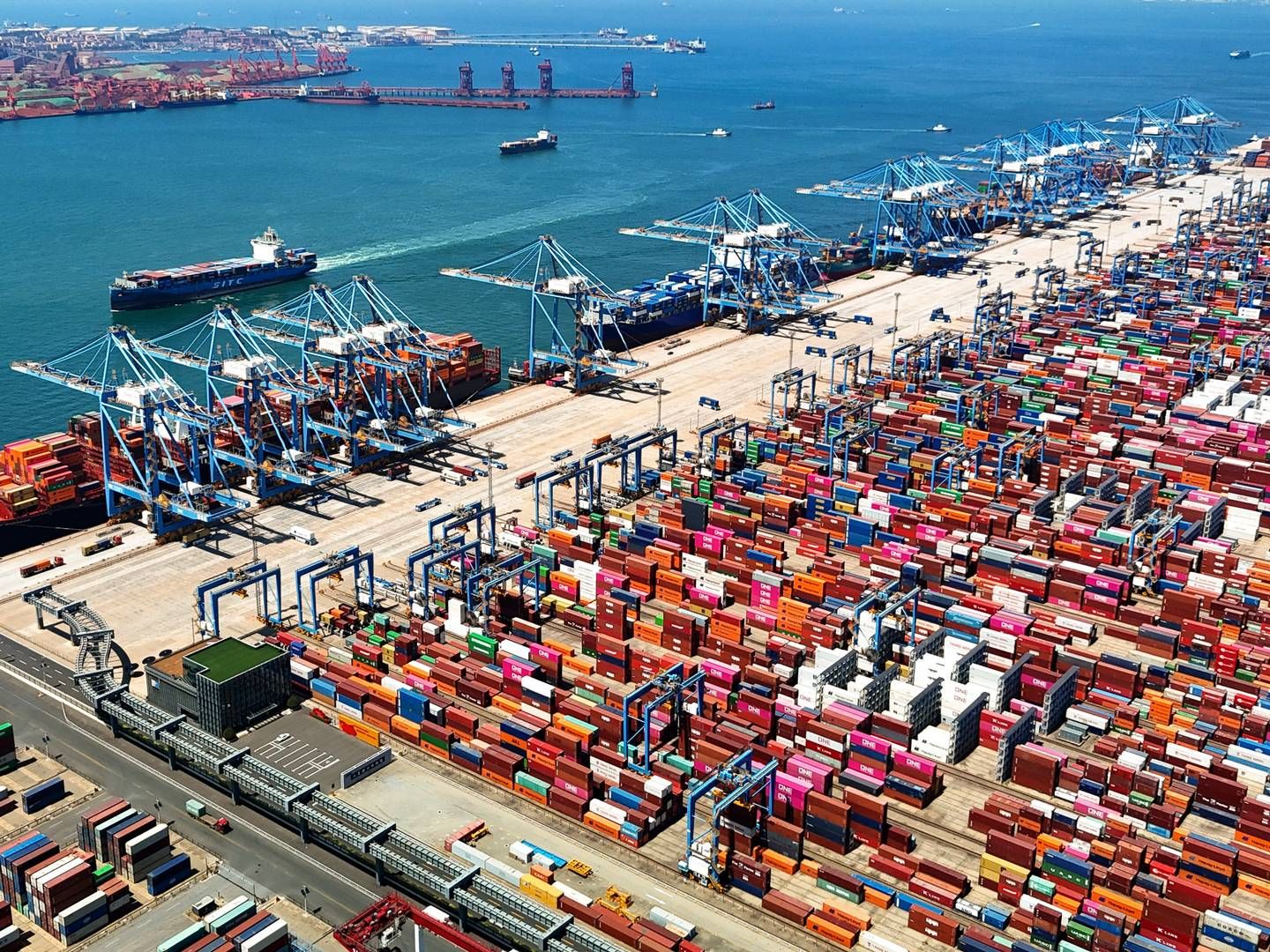Maersk vessels sailed under black-listed flag for final journey
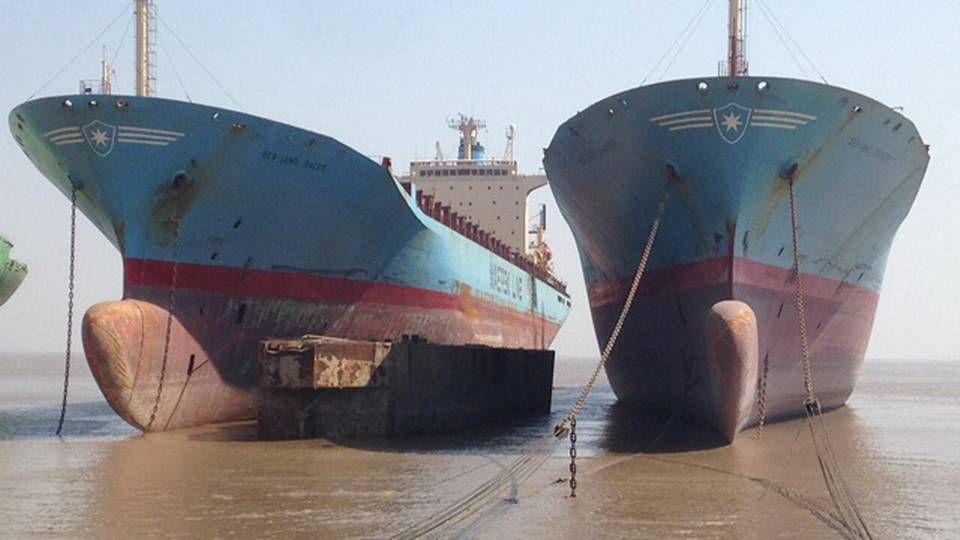
Four Maersk Line vessels switched to black-listed flags shortly before they departed on their final journey to shipbreaking yards in Alang.
This move was likely done to save money on salaries, safety and insurance before the vessels were to scrapped on the Indian beaches, several observers tell ShippingWatch.
Both countries have controversial ship registers because they barely enforce environmental regulations and requirements for labor conditions for seafarers.
They have furthermore been black-listed by the international port state control, Paris MoU, of which Denmark is a member.
Maersk has previously threatened to re-flag vessels to avoid regulations but denies that this is the case with the four ships.
Instead, the group states that the ships were sold to two cash buyers, which function middlemen that buy retired vessels and sell them on to the yards where they are chopped up.
"All four vessels have been sold to the cash-buyers in Singapore and the flag change happened under their control and ownership, for the final trip to Alang," Maersk writes to ShippingWatch, highlighting that the group thus had no influence on the decision.
Re-flagging the four vessels is criticized, however, by a union and an NGO, which both note that seafarers often pay the price when scrap buyers use black-listed flags to save money.
Seafarers caught in the middle
It is a well-known, yet controversial practice for buyers to re-flag vessels before selling them on to be scrapped on the beaches in South Asia. According to NGO Shipbreaking Platform, Palau and Comoros are two of the most popular flag states.
The registers are popular because they offer special last voyage deals for vessels which have been sold for scrap.
The black-listed flag-states furthermore allow for the crew on the final voyage to be paid less than usual, while seafarers are often poorly covered if accidents happen, writes union International Transport Workers Federation (ITF).
"Reflagging ships to FOCs [flags of convenience, -ed.] for their final voyages is unfortunately not an uncommon practice. What it means for the crews on those voyages is going to be a mixed picture, ranging from adequate to bad," says Maritime Coordinator, Jacqueline Smith, to ShippingWatch.
One example is vessel Tide Carrier, which sails under the Comoros flag and was detained by Norwegian authorities this April while headed to be scrapped in Pakistan. Six months later, several seafarers are still on board the ship because no one will pay to release it.
"Across the world's oceans, flags of convenience offer anonymity, cheap registration, limited labour legislation and low or no tax – but when things go wrong it's usually the seafarers who pay the real costs," says Smith.
New practice from 2016
The four container ships from Maersk Line are all close to 20 years old and were part of the carrier's Sealand fleet.
They were sold for scrapping in late 2016 and sailed until then under the Hong Kong and Singapore flags, which are both respected flag-states.
Shipbreaking of the four vessels is part of Maersk Group's new strategy to make use of the otherwise severely criticized beaching yards in India.
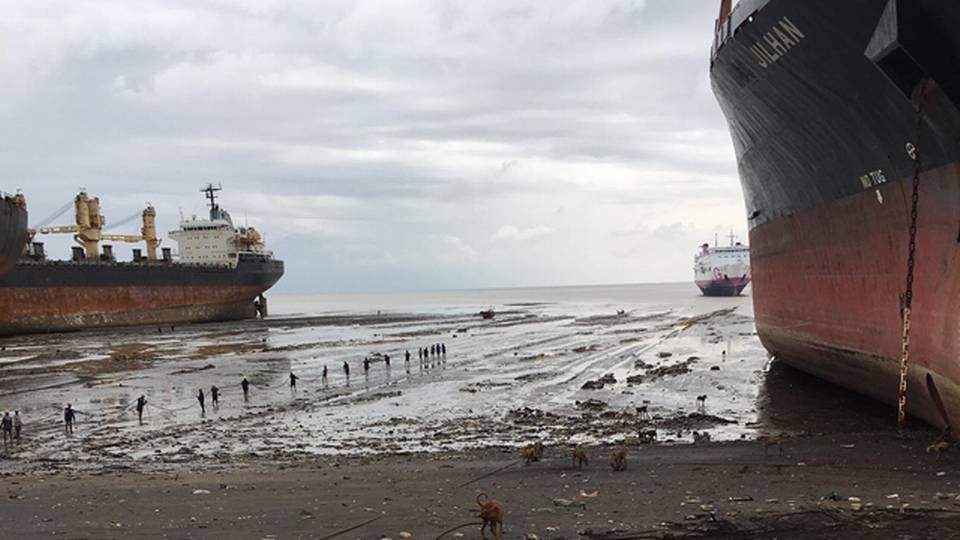
Maersk has previously steered clear of these yards, as the method of sailing the vessels directly onto the beach at high speed and then chopping it up in the tidewater zone was considered hazardous to the environment as well as the workers.
In 2016, however, Maersk Group changed its practice and decided to use two yards in Alang. This is partly because the yards in India pay a higher scrap price than in Turkey and China, but also because Maersk has ambitions to improve conditions by setting requirements for the yards.
Buyer's responsibility
However, the contract, signed by both buyers and scrapping yards when they buy vessels from Maersk, does not contain anything about the use of the black-listed flags on the vessel's last journey.
Therefore, Maersk cannot comment on whether the conditions for crew on board the ships was in compliance with the group's own standards.
"The re-flagging of the four vessels happened when they had been sold already, therefore outside of our control. Once the cash-buyer holds the ownership of the vessel they are responsible for all decisions," says Maersk.
This is in contrast to how Maersk otherwise tries to resolve problems with scrapping of its vessels.
Buyers must commit to scrapping the vessel at a yard, which lives up to the group's policy. However, when it comes to the vessel's last journey, Maersk will not take responsibility for the conditions. This applies only to the yard doing the scrapping itself.
"What we have done is to work with the yard owners in Alang to ensure that, provisions stipulating the full compliance with Maersk Responsible Ship Recycling Standards (RSRS) are included in all sell/purchase agreements we sign and that, if the provisions are not met, we are entitle to stop the scrapping operation," writes Maersk.
NGO: Maersk disclaims responsibility
However, it is too easy to shift responsibility to the cash-buyer, says NGO Shipbreaking Platform, which has been critical of Maersk's decision to use Alang yards on several occasions.
"Ship owners do not get relief from any obligation of due diligence for the last voyage by simply passing on the baton of responsibility to cash-buyers who make money from picking jurisdictions where implementation of worker rights and safety standards are notoriously bad," says Policy Officer Francesca Carlsson.
She argues that Maersk has a moral duty to ensure that all the rules are upheld when a vessel sails to scrapping yards, even though legal responsibility has technically shifted to the buyer.
"Cash-buyers use flags that are known for very poor implementation of the law, so by using such flags as Palau and Comoros it cuts off any recourse to pursue Maersk and the cash-buyers in case of an accident or anything happens to the crew during the last voyage," Carlsson tells ShippingWatch.
English Edit: Lena Rutkowski & Gretchen Deverell Pedersen
Maersk has now scrapped six ships in India
Maersk was warned about pollution risks in Alang
Related articles
Maersk has now scrapped six ships in India
For subscribers
EU politicians want to stop Maersk's scrapping in Alang
For subscribers

